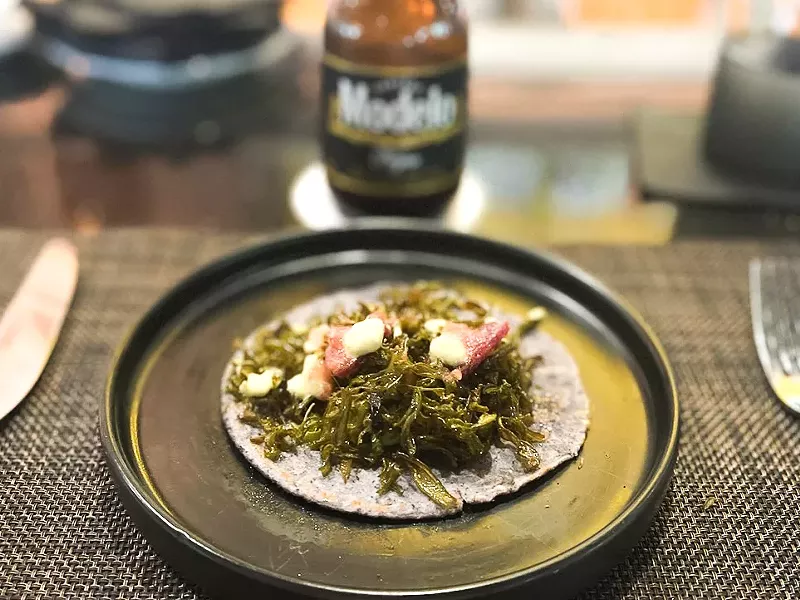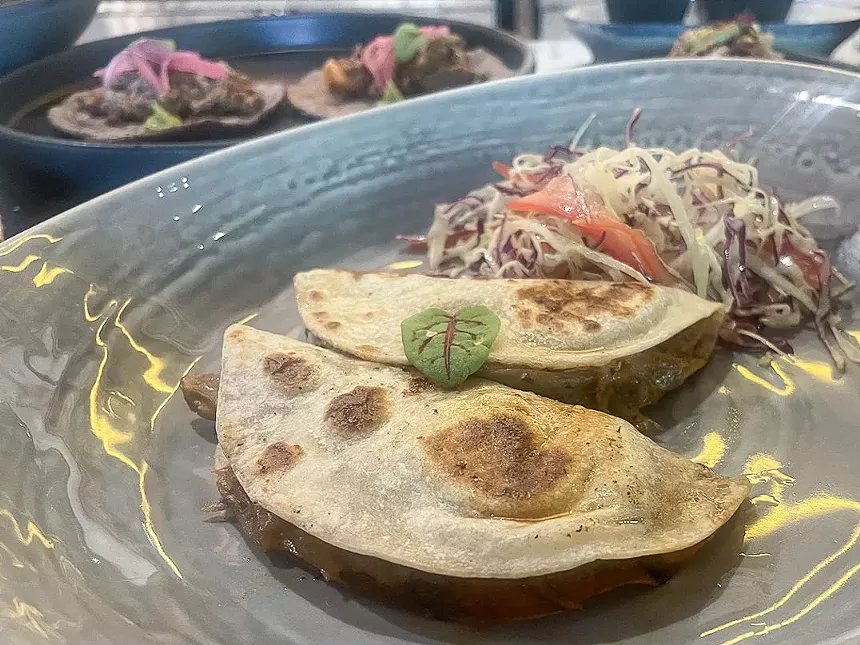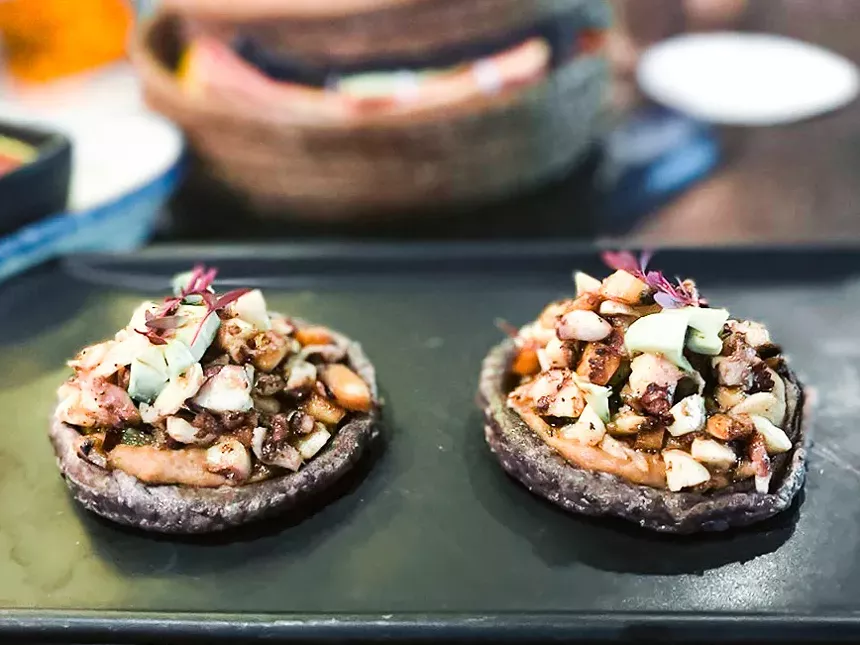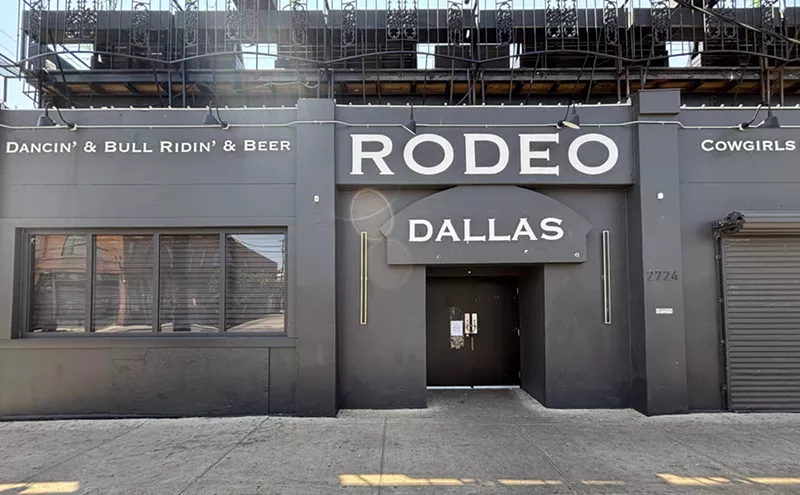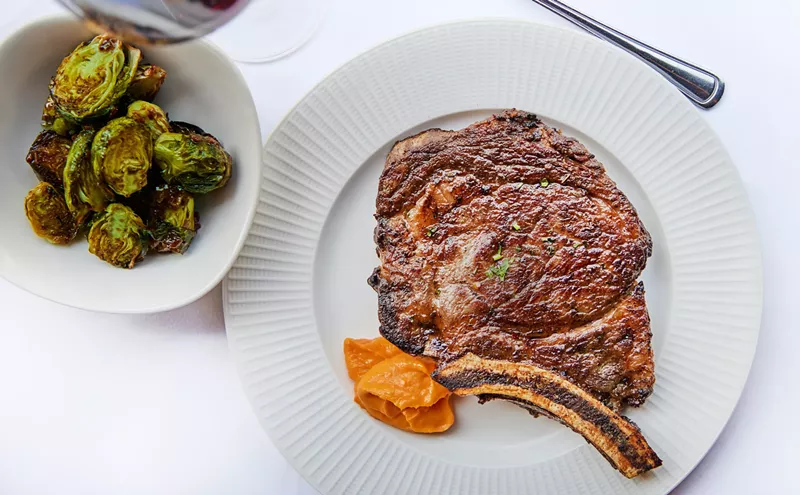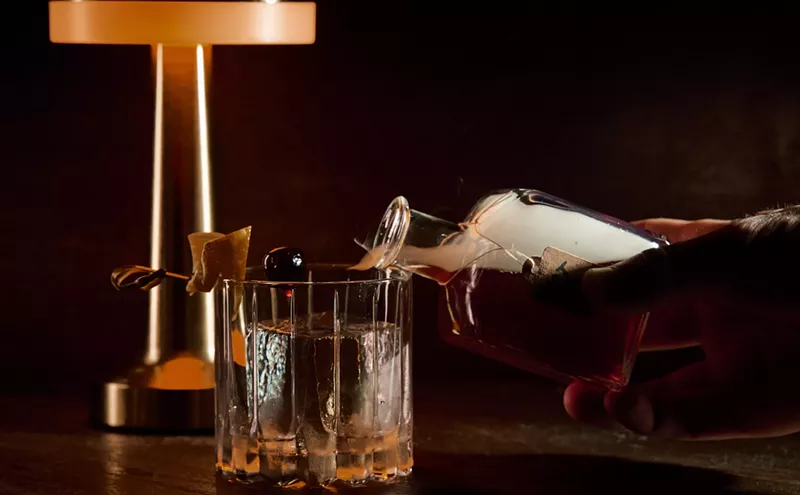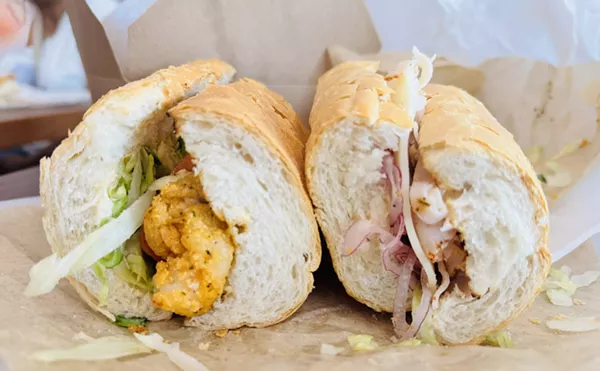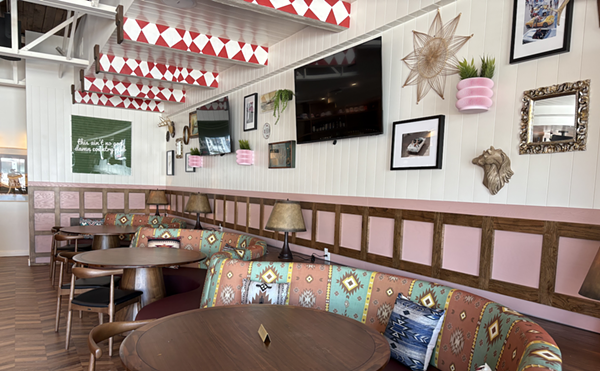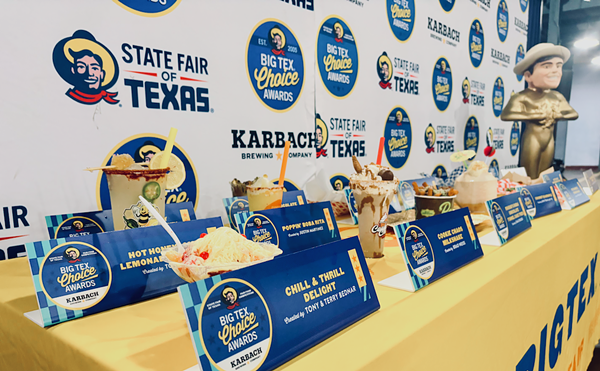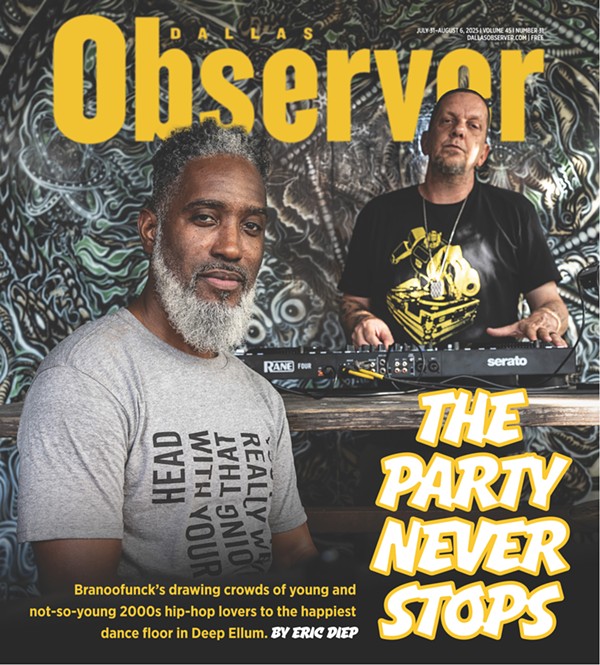The original Don Artemio opened in Saltillo, Mexico, and is named after a local author and influential figure from the early 1900s who was known for his appreciation of food and drink. The restaurant is owned by Juan Ramón Cárdenas, a well-known chef from that area, and the restaurant has been dazzling patrons with authentic upscale Mexican cuisine for more than 15 years.
Cárdenas always dreamed of expanding his concept to the U.S., and the opportunity finally presented itself when he met Adrián Burciaga, who oversaw Café Modern at the Modern Art Museum of Fort Worth. Cárdenas was a guest chef at Café Modern, and he and Burciaga, both from Saltillo, became friends. They discussed a new location, but the timing was never right until Burciaga lost his job in 2020 during COVID and became a “free agent."
The restaurant is located near the Fort Worth Cultural District in a building that once housed a Mr Gatti’s Pizza. They selected this location because this area honors the spirit of their namesake, Don Artemio. The entire space was transformed to reflect the cultural heritage of Saltillo. They brought most of the décor directly from Mexico, including over 20,000 terra-cotta bricks used for a wall separating the bar from the dining room. Several enormous wooden weaving looms, traditionally used to make serapes, hang from the ceiling as a centerpiece and light fixture in the dining room, with thick cotton thread throughout.
The bar area is spacious, with about 15 full-back barstools, each upholstered with Coahuila cowhide. The Coahuila region in Mexico is the fourth-largest exporter of live cattle to the U.S. The dining room chairs, cloth napkins and plates all have a blue tone, which mixes nicely with the neutral-colored bricks and natural wood tables.
The space has floor-to-ceiling windows covered by sheer curtains that allow natural sunlight in. For patio season, an outdoor dining area has hundreds of terra cotta planters filled with lush greenery. A private dining room holds an ever-growing wine collection with over 100 labels from Spain, Mexico, France and the U.S.
The day-to-day operations are led by Adrián Burciaga and Cárdenas’ son, Rodrigo Cárdenas, who is serving as executive chef. The elder Cárdenas visits the restaurant about once a month.
First and foremost, for the house-made tortillas, Don Artemio sources heirloom corn from Oaxaca and Tlaxcala and prepares the masa in-house. Our tortillas had a beautiful blue hue; the shades can vary depending on the specific heirloom corn used.
The menu at Don Artemio relies on the traditional flavors of Mexico using local ingredients. At lunch, we ordered nopalitos fritos ($20): julienned and fried cactus with cubes of bacon served with heirloom maiz and nixtamal tortillas. Spread a spoonful of guacamole on a tortilla and load it with fried cactus. The crunchiness of the cactus paired with the smokiness of the cubed bacon and the creaminess of the guacamole is spectacular. A side of the guacamole comes with the option to add chapulines (grasshoppers) or rib-eye chicharrons. We elected not to add either but could see how either of these would complement the guacamole.
We didn’t devour the entire dish, even though we wanted to, because there were other things we wanted to try. We took some home and, much to our surprise, the cactus maintained its crunchiness the next day.
Next, we had the tacos de lengua ($12), palomas de cabrito ($12), tacos de filete con papa ($10) and pulpo con chicharron (octopus and pork rind) sopecitos ($12). Each order came with two pieces. While all were outstanding, the tacos de lengua stole the show. The beef tongue is braised overnight and sauteed in salsa verde and tequila-cured tomatoes. Each tender bite has a surprising depth of flavor.
Sopecitos are a traditional Mexican dish consisting of a fried masa base loaded with savory toppings. We chose ajillo octopus, refried beans with bacon, chorizo and cheese. We placed a dollop of homemade salsa on top and enjoyed the combination and creativity of those ingredients coming together in a bite-size masterpiece.
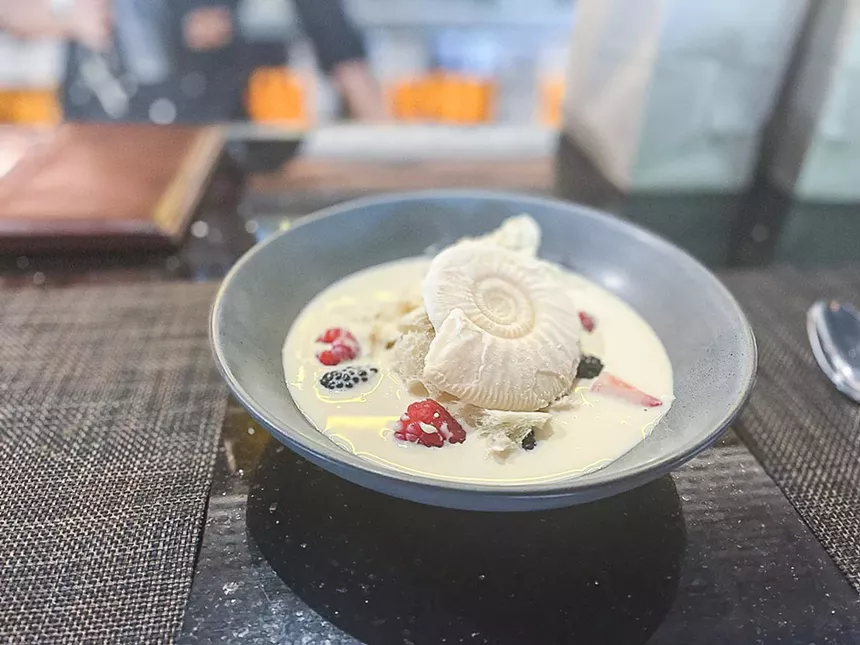
A deconstructed tres leches is served in a bowl with cake and ice cream. A server pours milk over the top just before serving.
Angie Quebedeaux
We will return to try more of the dinner menu, including the dry-aged wagyu steaks, Chilean sea bass and slow-cooked oven-roasted cabritos. We are also looking forward to returning for brunch for the duck confit chilaquiles and probably more of the tacos de lengua. Don Artemio is more than just a restaurant — it's an experience.
Don Artemio's, 3268 W. Seventh St., Fort Worth. Monday – Thursday, 11:30 a.m. – 9 p.m.; Friday – Saturday, 11:30 a.m. – 10 p.m.; Sunday, 10 a.m. – 8 p.m.

